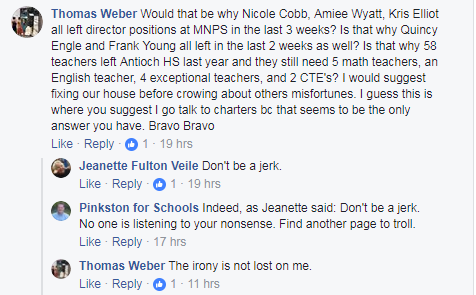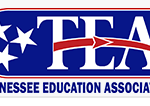Guess what? Tennessee taxpayers are on the hook for some $60 million to testing vendor Questar for new TNReady tests.
Guess what else? Those tests aren’t exactly helpful.
At least that’s the word from the education professionals in classrooms.
The Tennessean reports this year’s survey of Tennessee teachers indicates:
Sixty-five percent of educators surveyed said standardized exams aren’t worth the investment of time and effort. The same percentage of teachers said the exams don’t help refine teaching practices.
And 60 percent said the test doesn’t help them understand whether students gain the knowledge necessary to meet state standards.
In response, Education Commissioner Candice McQueen notes:
And teachers haven’t yet recieved meaningful data from the change to TNReady to help guide instruction due to the transition, Tennessee Education Commissioner Candice McQueen said. The state has and will continue to work to improve the usefulness of the test, she said.
Except the attitude about the previous tests wasn’t much better:
The attitudes toward testing also aren’t necessarily new.
In the 2015 survey, educators said testing was a burden, with teachers reporting they spent too much time preparing students for exams and taking tests.
Now, though, our students spend even more time testing and preparing for tests. Tests that educators don’t find useful. In fact, Chalkbeat notes:
By the time that Tennessee’s testing period wrapped up last week, the state’s elementary and middle school students had undergone about eight hours of end-of-year testing.
That’s more than double the testing minutes in 2012.
Why isn’t the testing useful? For one, the results don’t come back in time. Even with the switch to a new testing vendor this year following the debacle of the first year of TNReady, quick score results weren’t back very quickly and final results will be delivered later this year.
It’s worth noting, though, that even before the transition to TNReady, teachers found the testing regime burdensome and unhelpful. It’s almost like the state is surveying teachers but not actually paying attention to the results.
Why are educators frustrated, exactly? Teacher Mike Stein offers this:
Meanwhile, teachers’ performance bonuses and even their jobs are on the line. Though they wouldn’t assert themselves into the discussion, principals and directors of schools also rely heavily upon the state to administer a test that measures what it says it will measure and to provide timely results that can be acted upon. As long as both of these things remain in question, I must question both the importance of TNReady and the competence of those who insist upon any standardized test as a means of determining whether or not educators are doing their jobs.
Taxpayers are spending money on a test that day-to-day practitioners find unhelpful. In the case of evaluations, they also find it unfair. Because, well, it’s just not a valid indicator of teacher performance.
Perhaps state policymakers should take a closer look at the teacher survey results. Teachers have no problem being evaluated, and in fact, most say the current system provides them with useful feedback. The observation rubric is robust and with proper implementation and meaningful building-level support, can be helpful as a means of improving teaching practice.
What’s not especially helpful is a test that takes up significant instructional time and doesn’t yield information in a timely or useful manner.
Taking a step back and removing the high stakes associated with a single test could be an important first step toward right-sizing our state’s approach to student assessment.
For more on education politics and policy in Tennessee, follow @TNEdReport



